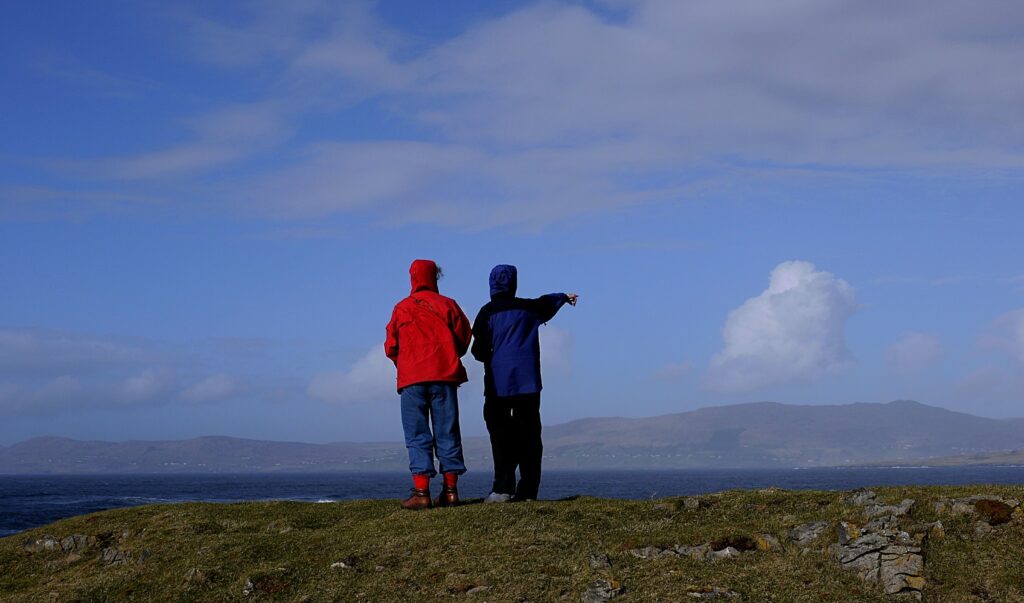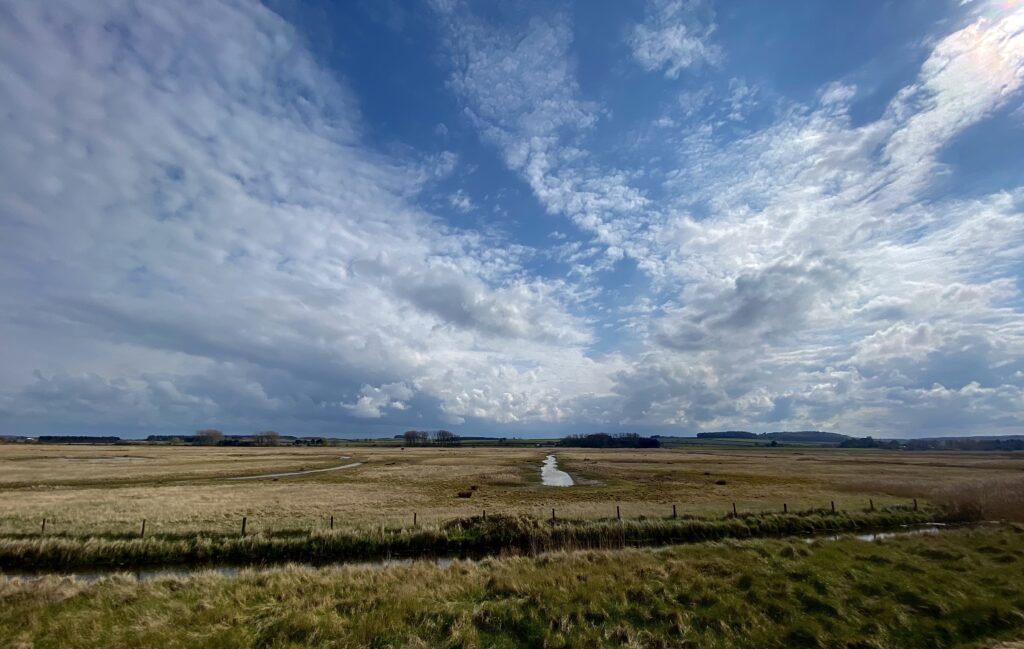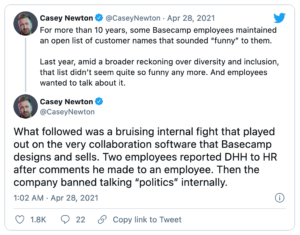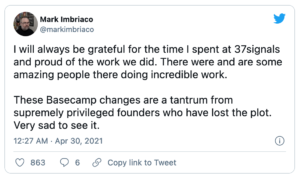Quote of the Day
”Henry James had a mind so fine that no idea could violate it.”
- T.S. Eliot
Musical alternative to the morning’s radio news
Peter Maxwell Davies | Farewell to Stromness | LAGQ
Nice arrangement for guitar. Interesting to compare it with the traditional piano arrangement
Long Read of the Day
The unstoppable Mr Higgins
My review of We are Bellingcat: An Intelligence Agency for the People, by Eliot Higgins.
On the face of it, this book tells an implausible story. It’s about how an ordinary guy – a bored administrator in Leicester, to be precise – becomes a skilled Internet sleuth solving puzzles and crimes which appear to defeat some of the world’s intelligence agencies. And yet it’s true. Eliot Higgins was indeed a bored administrator, out of a job and looking after his young daughter in 2011 while his wife went out to work. He was an avid watcher of YouTube videos, especially of those emanating from the Syrian civil war, and one day had an epiphany: “If you searched online you could find facts that neither the press nor the experts knew.”
Higgins realised that one reason why mainstream media were ignoring the torrent of material from the war zone that was being uploaded to YouTube and other social media channels was that these outlets were unable to verify or corroborate it…
(Forthcoming in British Journalism Review, June, 2021)
The meltdown at Basecamp shows even small tech firms are sociopathic
Yesterday’s Observer column:
Basecamp is a plucky little (57-person) tech company that makes useful and imaginative project-management software and innovative email software. Or, rather, it was until a fortnight ago, when it suddenly became embroiled in a traumatic internal row between its employees and its two cofounders, Jason Fried and David Heinemeier Hansson, a row that has transformed Basecamp into a much smaller company bearing the scars of collateral damage from a firefight in the culture wars.
Although Basecamp is a minnow in the world of tech giants, what happened there reflects what is already commonplace in its bigger counterparts. This is because, at base, the company’s internal dissension highlighted that the conflict was actually between the sociopathic imperatives of a corporation and the feelings of skilled employees concerned about the racism and sexism that is endemic in both US society and in an industry that for decades pretended that it was above such sordid concerns.
The first indication to the outside world that something was awry came on Monday 26 April when Fried, the company’s CEO, published a blogpost entitled “Changes at Basecamp”…
Last Thursday’s election results
Mostly predictable, I’d say. The Tories got some kind of ‘vaccination boost’. The voters aren’t much interested — yet — in the corruption, sleaze and incompetence of the government. And anyone who owns assets — which mostly means houses — has done just fine out of the pandemic. (Coincidentally, Hartlepool — where Labour lost a seat they’d held for generations — has a lot of owner-occupiers.) And then there was the fact that a Tory government — a Tory government! — has been paying furlough wages and spending public money like drunken Marxists.
So one wonders what are the implications for Labour? The results reminded me of what happened to the Democrats in the US after the Obama ‘Hope’-boost ran out of steam. Keir Starmer’s frank admission — that “Labour has lost the confidence of working people” — made me think of Listen Liberal, Thomas Frank’s sobering book about how the Democrats lost their way in the US. Here we are, he wrote (in 2016),
“eight years post-Hope. Growth that doesn’t grow; prosperity that doesn’t prosper. The country, we now understand, is simply no longer arranged in such a way as to make its citizens economically secure.”
I think that’s broadly the case for large swathes of the UK. If so, it’s difficult just now to see what kind of party Labour needs to become if it’s to find new audiences and revived electoral support.
Last week the FT ran a feature about the so-called ‘Red Wall’ of Labour seats that fell to Johnson in the last general election . The headline was: “Labour’s lost heartlands. Can it win them back?”
“No it can’t”, wrote an online commenter.
“Lovely people, but conservative (with a small c), despite traditionally voting Labour. I simply can’t see how Labour can be a modern, progressive party of the sort you find in most Northern European countries and serve the red wall at the same time.”
Me neither.
Later: Good piece in the Observer by Professor Robert Ford which reminded me that I had forgotten about the ‘Brexit effect’.
“Under Starmer”, Ford writes,
the party has sought to move on from Brexit. This, it seems, is not yet something English voters are willing to do. In seat after seat in Leave-voting parts of England, the Conservatives surged and Labour slumped. Leave voters, it seems, remain keen to reward the prime minister who “got Brexit done”.
Ford thinks that the results indicate significant changes under way in British politics. First of all,
traditional class-politics patterns are being turned upside down by a realignment around divides by age, education and – most of all – Brexit choices. On every available measure of socioeconomic conditions, the Conservatives prospered most in the most deprived places and Labour did best in the most prosperous areas. This inversion of class politics has already been evident for several years but it has continued, and perhaps intensified, in the first post-Brexit local elections.
Secondly, the post-Brexit education divide has intensified.
There were major swings to the Conservatives in the wards with the highest shares of voters with few or no formal qualifications, while there were modest swings to Labour in the wards with the largest concentrations of university graduates. There was less evidence of the generational divide seen in the last two general elections and Labour’s traditional advantage in more ethnically diverse areas was more muted than usual.
And here’s the sting in the tail that rang that bell for me about the US Democrats:
In 2021, as in 2019, Labour’s core electorate was graduates, well-off professionals and Remainers.
In other words, the people whose counterparts in the US voted for Hilary Clinton.
Seeing the Real Faces of Silicon Valley
Nice photo essay in The New York Times making the point that levels of inequality in the epicentre of the tech industry are mind-blowing.
This blog is also available as a daily email. If you think this might suit you better, why not subscribe? One email a day, Monday to Friday, delivered to your inbox at 7am UK time. It’s free, and there’s a one-click unsubscribe if you decide that your inbox is full enough already!










